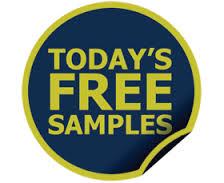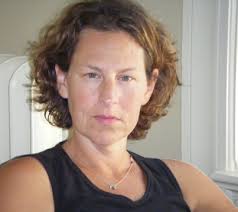It is not cool when trying to buy a therapeutic grade CBD oil and you specifically want a certain species of oil and you find out that it is cut with over 80% of the species that was not grown in the remote village they brag about. It's like they are using 20% CBD from Colorado or Europe and cut with 80% lab made not from hemp or CBD shipped from China where there is little to no regulation on growing hemp. (Europe has the highest organic standards) So from now on, unless they can prove to me it was sourced from I don't want it.
I am not saying anything is wrong with mixed species of oils but if they are putting really poor quality oils mixed in with the good ones, this is what I am referring to. Certain varieties of hemp are modified to have 10 to 20 times as much CBD as non-modified hemp grown for things like hemp rope and other materials.
Where the hemp is grown is also important to me just as much as the species. There are different chemical compositions when grown in different parts of the world. If it is grown in a climate that is not indigenous to the plant, this can make the chemistry composition way off. Many of the cbd oils that I tested are what I consider "backyard quality". The chemical composition of oils harvested in the backyard are not what I consider therapeutic grade. There are only a few greenhouses and LED lit "non-sun" derived hemp plants that I would consider.
BEWARE: Some brands are adding terpenes to reintroduce them due to being loss in the extraction process (not with critical CO2 companies use) but others I found that want to make their CBD cheap. I think I have a right to know what species of hemp my CBD is coming from. Certain varieties have different terpenes and constituents and if they tell me they only use one species of hemp then I know they are lying when they say their CBD has this or that many terpenes when I know that strain of hemp doesn't have it. YOU CAN'T BS A PERSON THAT KNOWS HOW TO RESEARCH HEMP.
The constituents to look out for when buying a CBD product, not matter what species, is on the label. Just like buying a multivitamin when looking at the percentages, the same way with cannabidiols. Some have more CBG, cannabigerol, while others have more CBD. It is also important to know the ratios of CBT and CBL (cannabicitran and cannabicyclol). Most of these companies I've reviewed can't even tell me about their CBD oil other than how thy extract it. Who cares if they use super critical CO2 if they use the lowest variety of hemp and they have lots of constituents but not the complete spectrum. It's like taking a multivitamin with just vitamin C and D and E and nothing else.
Note: there may be companies selling CBD that has heavy metal in it. I avoid CBD from countries that are known
for having heavy metals and heavy pesticides in their soil and don't care how it's grown. After Europe, USA grown hemp in Colorado has the highest organic standards. Kentucky is also the 2nd biggest place hemp is grown in the USA. The brands that are from hemp fields that are in Kentucky are usually priced cheaper. Colorado farmers that grow hemp since there are more fields in Colorado grow the lower yield strains of hemp. Farmers have to decide if they want to get maximum yield out of their hemp or a lower yield and sell the lower yield CBD at a higher price.
I urge people to study the different types of hemp varieties companies are using to make their CBD. I have done most of the research and it has been tough finding the answers that companies wouldn't answer. They think I am an employee from another company trying to get answers. Why does it matter if they supposedly are transparent and are not hiding anything. They won't lie to me. Not this customer.
Take my CBD quiz and get the CBD product brand based on your answers. Take the CBD Quiz here.
...because every CBD Oil company says theirs is the best
MyCBDOilReview.com
Free samples of CBD Oil. For those who want to review different brands I offer free samples. Take my quiz and I will send you samples of the top 2 or 3 brands based on your answers. I offer this for those doing a review to help my website.
Today's Special freebies
At Cost specials to first time people coming to my site
Know Before Buying
Helpful Information
Free CBD Samples
...because every CBD Oil company says theirs is the best
MyCBDOilReview.com
Free samples of CBD Oil. For those who want to review different brands I offer free samples. Take my quiz and I will send you samples of the top 2 or 3 brands based on your answers. I offer this for those doing a review to help my website.
Today's Special freebies
At Cost specials to first time people coming to my site
BIGGEST DECISION TO MAKE
There are benefits to totally raw CBD that Cooked CBD has, and vice versa. Most important page on this site to consider - here












